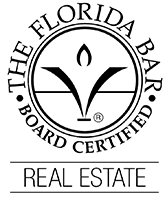How To Sue A Member Of An LLC Without Piercing The Corporate Veil
For business owners who think they can form a limited liability company and avoid personal liability, a Florida appellate court has a message: THINK AGAIN! Just as an individual corporate officer may be held personally liable for negligence, so may a member of a limited liability company (LLC) be held personally liable for negligence.
In Estate of Canavan v. National Healthcare Corp., 2004 Fla. App. LEXIS 10998 (Fla. 2nd DCA, July 23, 2004, Case No. 2D02-2438), the trial court granted a directed verdict in favor of a member of an LLC that operated a nursing home. The trial court accepted the LLC member’s argument that he could not be held personally liable as a managing member of the LLC, or as an officer of the corporation that was manager of the LLC, without piercing the corporate veil.
The appellate court reversed on the basis that negligence is tortious conduct which is not shielded from personal liability, hence it was not necessary to pierce the corporate veil in order to keep the alleged individual tortfeasor/member in the lawsuit as an individual party defendant. The court cited a 1999 Florida case that held officers of a corporation may be personally liable for their own torts even if their acts are performed as corporate officers. Fla. Specialty, Inc. v. H 2 Ology, Inc., 742 So.2d 523 (Fla. 1st DCA 1999).
In the Canavan case, the plaintiff sued for damages suffered by the decedent while residing in a nursing home operated by 1620 Health Partners, L.C., a Florida limited liability company. The manager of the LLC was a corporation, Southern Hospitality Developers, Inc. An individual named Roger Friedbauer and his wife were members of the LLC. They were also the only “principals or shareholders”, to use the court’s words, of the LLC and corporation. The corporation had no full-time employees.
The plaintiff sued the LLC, the corporation and Roger Friedbauer, personally. The plaintiff successfully argued that it had presented evidence that Roger Friedbauer was negligent in that he was responsible for approving the nursing home’s budget, that he functioned as the sole member of the governing body of the nursing home, that federal law (42 C.F.R. Sec. 483.75(d) (2002)) makes the governing body legally responsible for establishing and implementing management and operation policies, that he ignored complaints of inadequate staffing while cutting operating expenses, and that the pressure sores, infections, and other medical problems suffered by the decedent were the direct result of understaffing of the nursing home. The appellate court granted the decedent’s estate a new trial against Roger Friedbauer.
This case is a reminder that the limited liability protection offered by an LLC is not absolute. Just as an officer of a corporation may be held liable for his or her own personal negligence while acting in that capacity, a member of an LLC may also be personally liable for his or her own personal negligence or other tortious conduct while acting on behalf of the LLC. To expect otherwise would be asking for a license to be negligent, which at least one Florida court will not grant.
An LLC member cannot hide behind the LLC shield in Florida for his or her own negligence.








